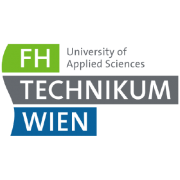Building Qualifications to European standards

“Euroentrepreneurship – university qualifications for the Europeanization of the Romanian society” (POSDRU/156/1.2/G/140578) is a project implemented by the College of Communication and Public Relations (National University of Political Studies and Public Administration – NUPSPA, Bucharest) in partnership with the Institute for European Studies within Vrije Universitiet Brussels (VUB).
The main challenge addressed by the project was to increase the capacity of Romanian universities (as PHE representatives) to provide qualifications that meet the needs of the employers and the on-going dynamics of the labor market. Two specific objectives of the project were
- to introduce and validate a new qualification in Romania: expert in European affairs
- to improve the curricula of the three targeted MA programmes, in order to meet the labour market needs.
The project was co-financed by the European Social Fund, total eligible value: 2150473.19 lei, of which 2105313.25 lei is the value of the non-reimbursable financial assistance, via the Sectoral Operational Programme Human Resources Development 2007 – 2013, Priority Axis 1 – “Education and training in support for growth and development of knowledge based society”, Key Area of Intervention 1.2 – “Quality in higher education”.
- The target groups were the MA students in the programs EU Communication & Governance, Project Management, and Brand Management & Corporate Communication, and the employees from the beneficiary (10 members from the university or college leadership/commissions, 10 people involved in the development and management of academic qualification at the university/college level, and 16 people involved in the development of higher education study programs).
The team conducted a two-fold research on the skills and expertise expected by employers from the future experts in communication, governance and entrepreneurship in the European context. The views of both national and European employers were taken into consideration.
From a methodological standpoint, two mirror studies were conducted in Romania and in Brussels, with the input of the partner- IES-VUB. From the student perspective, the studies aimed to identify strengths of Master programmes, the gaps and shortcomings of Master programmes, and the key elements to improve European Master’s programmes in relation to access to the job market. From the employer’s perspective, they aimed to inquire about professional qualifications needed/desired to enter the work field within various institutions related to European affairs, and to identify academic and knowledge gaps or barriers to access the job market.
The Romanian study employed qualitative methods- interviews and focus groups. Interviews with representatives of the Romanian accreditation bodies, representative of the PHE institutions management, and representatives of the employers were conducted. Furthermore, focus groups with students enrolled in the three masters programs provided the second cluster of data. The mirror study, implemented by the Belgian partner, included an online Survey with alumni from IES 2 Master degree programmes and interviews with HR experts in the field related to European Affairs.
In order to strengthen the connection between the faculty members, students, and the field of work, a series of study visits to Brussels were organized. Three training sessions on “How to teach Europe” for 36 staff members of the Beneficiary took place in Bruxelles, including study visits at the European institutions. Additionally, three ‘Bruxelles open doors’ campaigns, including study visits at the European institutions, were provided for 60 MA students.
Some important results of this project are the following:
- two studies on the qualifications and competencies of experts in communication, governance and entrepreneurship in the European context;
- three up-to-date MA programs (EU Communication & Governance, Project Management, and Brand Management & Corporate Communication);
- three training sessions on “How to teach Europe” for 36 NUPSPA’s experts at Bruxelles;
- three ‘Bruxelles open doors’ campaigns for 60 MA students;
- a new qualification – expert in EU affairs – validated by the National Authority for Qualifications;
- a new research center and practice network.






